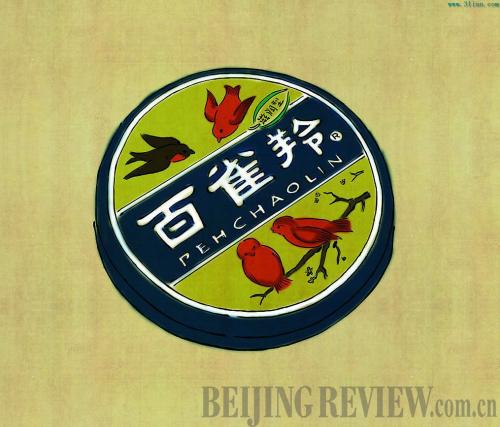|
 |
|
SMOOTH: Popular Chinese moisturizing cream (COURTESY PHOTO) |
Feng Yan's bathroom shelves are lined with cosmetics and lotions in every possible shape, color and size. Her daily routine includes Clinique's scrubs, Dior's toner, Lancôme's eye creams, and Bobbie Brown's makeup base. Most of her choices are top foreign brands.
But since last year, some Chinese skin care products have begun to make an appearance on Feng's shelves. The 29-year-old HR consultant has even started to look for particular local cosmetics online as she finds them more to her liking.
Cost effective
The domestic cosmetics market is largely dominated by foreign brands. Official statistics show that only 30 percent of China's total cosmetics consumption in 2009 was taken up by domestic players. Despite this, domestic brands are becoming a trendy alternative.
The powerful consumer force of young women like Feng are now tucking old Chinese name brands into their makeup kits, such as Pehchaolin, a cream with nearly 60 years of history, personal care products manufacturer Shanghai Jahwa's MAXAM and Herborist, and Beijing-based Dabao and Miracle. These brands have products often costing an average of 30 yuan ($4.5) each.
Office worker Wang Jing has over 10 years of experience in skin care and improving her appearance, and is a domestic brand lover. "I had serious reaction in pregnancy to all imported foreign brands that I had been using. But I didn't feel sick after I started to use a domestic brand by chance."
The young mother began realizing that too many chemicals were bad for her skin, whereas many Chinese cosmetics products made from plant extracts have a better effect, and are only one-fifth the price of similar foreign brands.
Wang is a loyal user of Herborist, a medium-priced brand, made from Chinese herbs, and the top seller of Shanghai Jahwa. The company enjoyed more than 60 percent increase in sales in 2009, prompting it to open 250 more stores nationwide in 2010.
Liang Yue, an executive working in Japan, said a lot of Chinese products incorporating natural ingredients are more popular abroad. "Miracle's moisturizing lotion in Japan is as expensive as Estée Lauder," Liang told ChinAfrica. "I used these time-honored products for a long time and have also recommended them to my friends."
Some analysts said Chinese are increasingly happy to spend more on cosmetics and skincare products integrated with herbs. "China has a tradition of using natural ingredients [derived from herbs] such as pearl, polygonum multiflorum, and aloe, which are considered good for health," said Kim Li, a consultant from industry consulting company Frost & Sullivan China. "As many Chinese believe in this tradition, there will be a big chance for naturally-made cosmetics to increase their market share."
It's not simply a case of adding some herbs to boost sales, however. Industry insider pointed out that global economic gloom and escalating domestic inflation are influencing the behavior of Chinese consumers. Chen Shaojun, Secretary General of China Association of Fragrance Flavor and Cosmetic Industries, said Chinese have become more rational in consumption, and are looking for high quality, low cost and reliable products. Local brands are able to build up again a cult following quickly because of their advantages of long-standing reputation and deep understanding of Chinese traditions compared with overseas brands, he added.
|